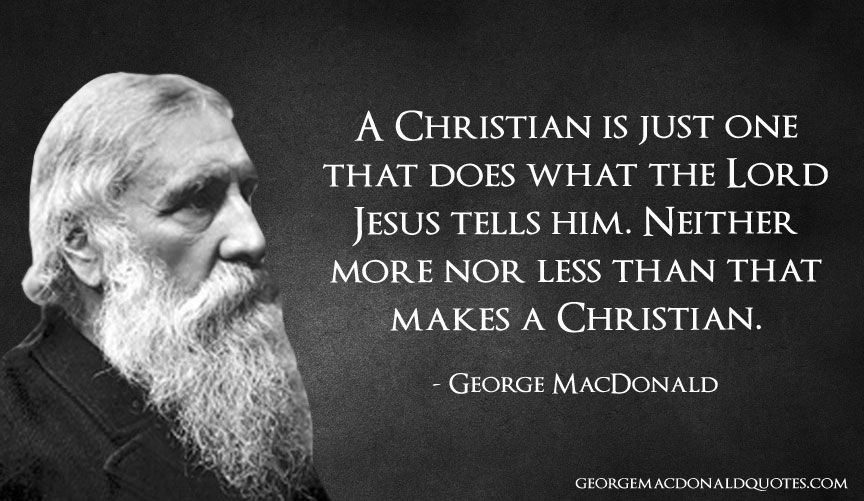Two of my favorite writers were from that century - George MacDonald and Wm. Ellery Channing - both Christians.
I am continually impressed by the force and persuasiveness of their focus on Moral Strength. This is a category of instruction that is ‘old-fashioned’, quaint, and so ‘not cool’ that it is not taught in most any secular home or school any longer; it was part of the fabric of Western civilization in that century. It could make its appeal and be understood. The vocabulary was a common one at that time.
In many quarters today, there would be a hue and yes, a cry…with complaints of “Works works works - where is the Grace?” - and those complaints completely miss the mark. I know of staunch ‘justified by faith’ believers that complain about MacDonald the same way.
This is a sad state of affairs, as what these two gentlemen and others were trying to get across is of the Utmost essence imo.
This introductory paragraph from Channing’s excellent essay “Self Denial” gives a bit of the flavor; the real strength is in the rest of the essay, which I most heartfully recommend.
Matthew xvi. 24: “Then said Jesus unto his disciples, if any man will come after me, let him deny himself, and take up his cross, and follow me.” In the preceding discourse, I spoke of the just limits and moral dignity of self-denial. I resume the subject, because it throws much light on the nature of true virtue, and helps us to distinguish moral goodness from qualities which resemble it. Clear conceptions on this point are inestimable. To love and seek excellence, we must know what it is, and separate it from counterfeits. For want of just views of virtue and piety, men’s admiration and efforts are often wasted, and sometimes carry them wide of the great object of human life. Perhaps truth on this subject cannot be brought out more clearly than by considering the nature of Self-denial. Such will be the aim of this discourse. To deny ourselves, is to deny, to withstand, to renounce offers itself, What constitutes the singular merit of this suffering? Mere suffering, we all know, is not virtue. Evil men often endure pain as well as the good, and are evil still. This and this alone constitutes the worth and importance of the sacrifice, suffering, which enters into self-denial, that it springs from and manifests Moral Strength, power over ourselves, force of purpose, or the mind’s resolute determination of itself to duty. It is the proof and result of inward energy. Difficulty, hardship, suffering, sacrifices, are tests and measures of Moral Force, and the great means of its enlargement. To withstand these is the same thing as to put forth power. Self-denial, then, is the will acting with power in the choice and prosecution of duty. Here we have the distinguishing glory of self-denial, and here we have the essence and distinction of a good and virtuous man.




